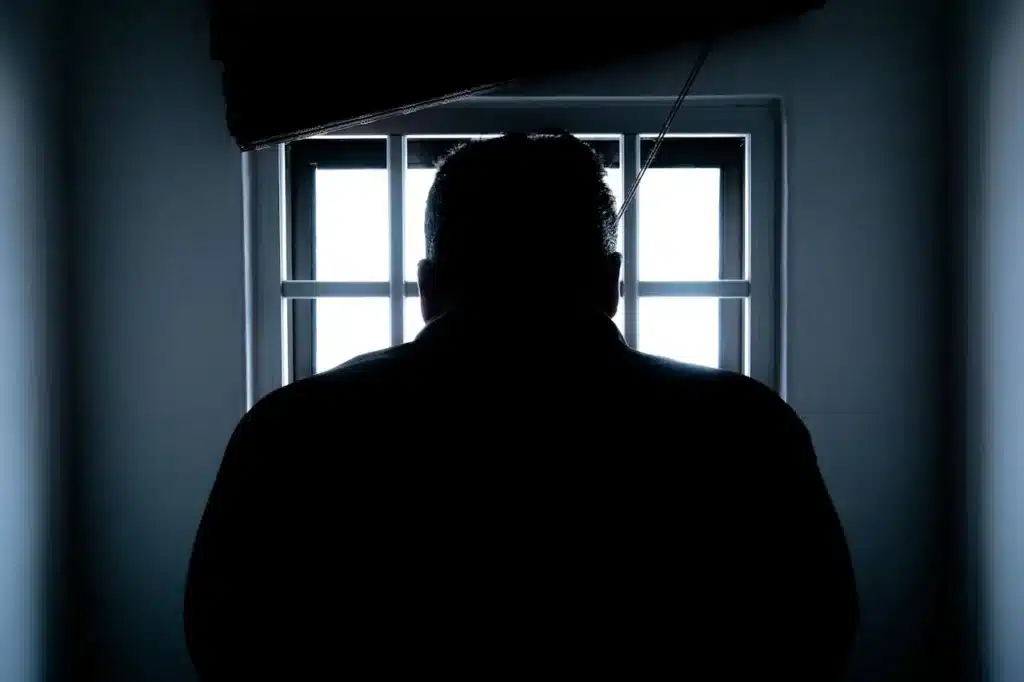A felony DUI conviction in Florida brings consequences that extend far beyond the penalties of a standard offense. The impact reaches into every part of life, from loss of freedom to serious financial setbacks and long-term limitations on future opportunities. For many, the challenges continue long after the case is decided.
Understanding what qualifies as a felony DUI in Florida is essential for anyone facing these charges. Courts impose heavy penalties that may include prison, large fines, and permanent license loss. Treatment programs, ongoing monitoring, and unexpected financial costs often add more pressure to an already difficult situation.
This blog explains felony DUI penalties, personal consequences, DUI manslaughter cases, possible defenses, and how Cocoa Beach DUI defense attorneys provide support.
What Counts as a Felony DUI in Florida?
Felony charges under Florida DUI laws apply when the offense involves repeat violations or serious harm to others. Unlike typical cases, a felony conviction brings harsher penalties and permanent consequences that reshape a person’s future. Knowing what qualifies as felony DUI in Florida helps defendants understand risks and prepare for strong defense strategies.
Repeat Offenses
A third DUI arrest within ten years of a prior conviction is treated as a felony under state law. A fourth DUI, no matter how much time has passed, is also an automatic felony offense. Sentencing becomes more severe with each repeat violation.
Serious Bodily Injury
Any crash that causes permanent disfigurement, loss of bodily function, or life-threatening injury raises charges to a felony. Courts rely heavily on victim testimony and medical documentation. These details often shape the outcome of sentencing decisions.
DUI Manslaughter
A driver who causes death while impaired faces DUI laws in Florida classifying the crime as a second-degree felony. Convictions carry prison time, loss of rights, and lifelong stigma. These cases are among the most devastating in the legal system.

Criminal Penalties for Felony DUI Convictions
A felony DUI conviction under Florida DUI laws brings severe criminal penalties that extend far beyond ordinary misdemeanor cases. Judges follow strict guidelines, and sentences often leave defendants with little chance for reduced punishment. These consequences highlight why immediate legal guidance is essential in felony cases.
Prison Sentences
A third felony DUI offense may result in a sentence of up to five years in state prison. DUI manslaughter carries up to fifteen years, or thirty if the driver leaves the scene. Sentencing guidelines in Florida DUI cases allow very limited flexibility.
Fines and Court Costs
Financial penalties can devastate families already facing hardship after a conviction. Third offenses range from $2,000 to $5,000. DUI manslaughter may reach $10,000, with added restitution covering victim-related expenses.
Probation and Mandatory Programs
Judges often order probation with strict conditions that limit freedom and demand full compliance. Defendants must complete DUI school, counseling, or treatment. Community service is standard, adding another layer of ongoing responsibility after sentencing.
Driver’s License Revocation
A felony DUI conviction in Florida almost always results in lengthy driver’s license revocation. Losing driving privileges affects employment, family responsibilities, and daily independence. These penalties show how strict DUI laws in Florida are for repeat or serious offenses.
Length of Revocation
A third DUI within ten years brings a license revocation of at least ten years. A fourth DUI conviction leads to permanent loss of driving privileges. Hardship reinstatement is not guaranteed and depends on strict court review.
Hardship License Options
Some offenders may apply for a hardship license after five years if rehabilitation is proven. Approval requires installing an ignition interlock device. Driving is restricted to essential needs like work, school, or treatment programs.
Ignition Interlock Devices
Ignition interlock devices are mandatory for reinstated licenses following felony DUI offenses. Offenders cover installation and ongoing monitoring costs. Any violations can extend revocation periods and limit future reinstatement opportunities.

Mandatory Substance Abuse Treatment and Monitoring
A felony DUI arrest in Florida almost always results in strict treatment and monitoring requirements. Courts use these measures to address substance abuse while reducing risks of repeat offenses. Compliance is essential because violations can lead to extended penalties or imprisonment.
Court-Ordered Evaluations
After a felony DUI conviction, defendants must complete a comprehensive substance abuse evaluation. Licensed professionals assess the severity of addiction issues. Their recommendations determine the type and length of treatment ordered by the court.
Treatment Programs
Courts may require inpatient rehabilitation programs or structured outpatient care depending on evaluation results. Progress reports are regularly submitted to probation officers. These updates ensure defendants follow requirements and remain on track with recovery goals.
Random Testing and Monitoring
Probation typically includes random alcohol or drug testing throughout the supervision period. Some cases require continuous alcohol monitoring devices. Non-compliance often results in probation violations, extended penalties, or immediate jail time.

Financial Consequences Beyond Fines
The costs of a felony DUI in Florida extend far beyond court-imposed fines and penalties. Defendants face years of financial pressure that can affect families and long-term opportunities. These burdens highlight the importance of strong legal defense in Florida DUI cases.
Increased Insurance Costs
- Florida requires high-risk FR-44 insurance coverage after a felony DUI conviction.
- Premiums often triple, placing heavy strain on monthly budgets.
- Drivers must maintain this insurance for at least three consecutive years.
Restitution Payments
- Courts may order restitution to cover victims’ medical bills.
- Payments may also include property damage.
- Lost wages are another common obligation.
- These orders are separate from fines and often overwhelm families already struggling after conviction.
Court Fees and Hidden Costs
- Interlock device fees add recurring expenses.
- Probation supervision charges apply during monitoring periods.
- Regular testing expenses increase the financial load.
- Non-payment can lead to license suspension or additional penalties, creating further legal complications.
Long-Term Personal and Professional Consequences
A felony DUI conviction in Florida carries lasting effects that go far beyond immediate penalties or financial obligations. These consequences follow individuals for life, impacting personal stability, professional opportunities, and even the ability to travel. Understanding these risks highlights why strong defense under Florida DUI laws is critical.
Permanent Criminal Record
Felony DUI convictions cannot be sealed or expunged under current state law. The conviction stays on record permanently. Employers, landlords, and licensing boards see the conviction on routine background checks for life.
Employment and Licensing Restrictions
Many jobs, especially those in government or transportation, become inaccessible after felony DUI convictions. Professional licenses often face revocation. Nurses, teachers, and commercial drivers risk losing the ability to work in their fields.
Immigration and Travel Limits
Non-citizens with felony convictions risk deportation, visa denials, or refusal of naturalization applications. International travel becomes difficult. Some countries deny entry outright to travelers with felony DUI convictions.
How Florida Courts Handle DUI Manslaughter
DUI manslaughter is one of the most severe charges under DUI laws in Florida. These cases bring life-changing consequences, including long prison terms and permanent criminal records. Defendants face strict sentencing rules that leave very little room for leniency.
Mandatory Prison Terms
Florida law requires a minimum prison term of four years for DUI manslaughter convictions. Judges have no authority to waive this minimum. In many cases, sentences exceed the required minimum based on aggravating circumstances.
Felony Degree and Penalties
DUI manslaughter is classified as a second-degree felony under Florida DUI statutes. If the offender flees the scene, charges escalate. Fleeing upgrades the offense to a first-degree felony, carrying even harsher penalties.
Victim Impact Hearings
Families of victims may deliver statements during sentencing hearings. Their testimony is often deeply emotional and powerful. Judges may consider these statements when determining the severity of final sentencing decisions.
Defenses and Post-Conviction Options
Even after a felony DUI conviction, defendants may have limited options to challenge outcomes. Appeals, evidence disputes, or post-conviction motions sometimes reduce penalties. Skilled attorneys evaluate every possibility to protect rights under strict DUI laws in Florida.
Appeals and Sentence Modifications
- Appeals allow review if errors occurred during trial or sentencing.
- Defendants must act quickly because filing deadlines are strict.
- Successful appeals or sentence modifications are rare but can provide meaningful relief in certain cases.
Challenging Evidence
- Attorneys may challenge the reliability of breathalyzer or blood test results.
- Police procedural errors can create opportunities to dispute charges.
- Weaknesses in evidence may reduce charges or lead to dismissal.
Post-Conviction Relief
Defendants may request relief through specific motions targeting collateral consequences. These may address professional or licensing impacts. Though rare, post-conviction relief can help ease long-term burdens.

Role of a Cocoa Beach DUI Defense Attorney
Attorneys provide critical support by interpreting statutes, analyzing evidence, and safeguarding defendants’ rights. Their work helps clients navigate a system that otherwise feels impossible to manage alone.
Navigating Complex Laws
DUI laws in Florida impose unforgiving penalties, leaving little room for error. Defense attorneys carefully interpret statutes and sentencing guidelines. Their guidance ensures clients understand the charges and available legal options.
Building a Strong Defense
Attorneys examine arrest reports, chemical test procedures, and officer testimony for weaknesses. They also identify potential constitutional violations. Exposing these issues strengthens defense strategies and may reduce charges.
Mitigation and Negotiation
Defense lawyers negotiate alternative sentencing options or reduced charges. They present rehabilitation progress and positive character evidence. These strategies often help minimize penalties and long-term consequences.
Protecting Future Opportunities
Attorneys advise on license reinstatement, employment protections, and preserving professional opportunities. Families also benefit from ongoing guidance. This support helps defendants prepare for challenges beyond the courtroom.
Conclusion
A felony DUI in Florida brings severe legal, financial, and personal consequences that affect every part of life. Prison sentences, permanent records, and long-term license revocation show how unforgiving Florida DUI penalties can be. Immediate action makes all the difference.
Working with an experienced attorney after a DUI conviction ensures your rights are fully protected at every stage. Skilled defense may reduce penalties, preserve opportunities, and guide families through the lasting consequences. Quick action remains the strongest tool for safeguarding your future.
At DeGraff Hicks Law Group, we know how overwhelming a felony DUI conviction in Florida can be. Our knowledge of Florida DUI laws allows us to defend your rights, challenge unfair penalties, and protect your future. Call us today at (321) 44-SHARK to speak with a Cocoa Beach DUI attorney. Take action now and let our team guide you through this difficult time.


